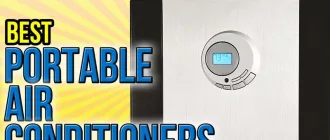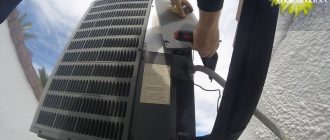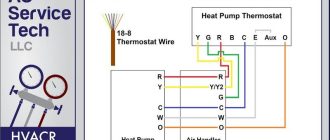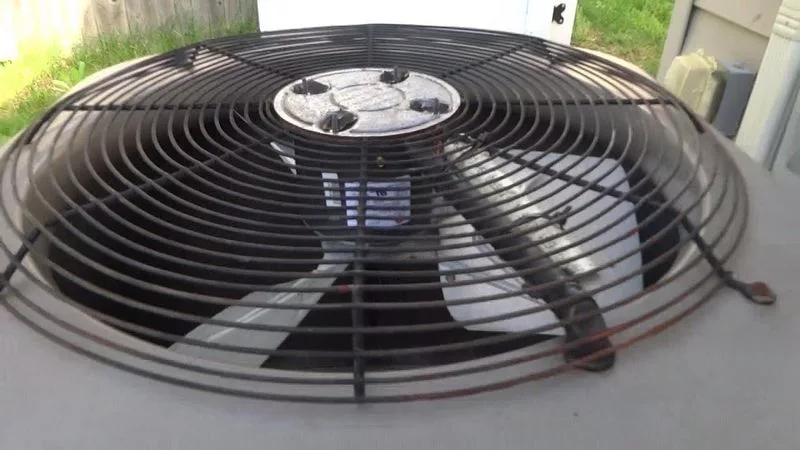
Troubleshooting Tips: A/C Unit Fan Not Spinning
Is your A/C unit not providing cool air? One of the common reasons for this problem could be a fan that is not spinning. The fan plays a crucial role in circulating the air and maintaining the proper temperature in your home or office. In this article, we will provide you with some troubleshooting tips to fix the issue of a fan not spinning.
Firstly, it is important to check if the fan is receiving power. A loose or disconnected power connection can prevent the fan from spinning. Ensure that the unit is properly plugged in and that the power supply is functioning correctly. If you find any issues, reconnect the power source or replace any faulty components.
Another possible reason for a fan not spinning is a malfunctioning motor. An overheated motor or worn out motor bearings can cause the fan to stop working. In such cases, you may need to replace the motor or have it repaired by a professional. It is important to have regular maintenance checks to prevent motor-related issues.
In addition, a stuck or obstructed fan blade can prevent it from spinning. Inspect the blades carefully and remove any debris or obstructions that may be hindering their movement. Use caution while handling the blades and ensure that the power supply is disconnected. Once the blades are clean and free from obstructions, reconnect the power and check if the fan is spinning again.
Remember, troubleshooting and fixing an A/C unit with a fan that is not spinning can be complex and may require professional help. If you are unsure or uncomfortable with performing any repairs yourself, it is recommended to contact a licensed HVAC technician. They have the knowledge and experience to diagnose and fix the issue effectively, restoring your A/C unit to its full functionality.
Common Causes of A/C Unit Fan Failure
When troubleshooting why your A/C unit’s fan is not spinning, there are several common causes that you should check for:
- Electrical Issues: The fan may not be spinning due to electrical problems, such as a faulty motor or a blown fuse.
- Motor Failure: Over time, the fan motor may wear out or become damaged, preventing it from spinning.
- Capacitor Problems: A faulty capacitor can cause the fan motor to struggle or not start at all.
- Blocked or Dirty Fan Blades: If the fan blades are covered in dirt, dust, or debris, they may not be able to spin freely.
- Failure of the Fan Relay: The fan relay is responsible for sending power to the fan motor. If it fails, the fan may not spin.
- Malfunctioning Thermostat: If there is an issue with the thermostat, it may not be sending the correct signals to the A/C unit to activate the fan.
- Low Refrigerant Levels: Insufficient refrigerant levels can cause the A/C unit to shut down or prevent the fan from spinning.
These are just a few of the possible causes of A/C unit fan failure. It is important to troubleshoot and diagnose the specific issue in order to properly fix it. If you are unsure or do not have the necessary skills, it is recommended to seek the assistance of a professional HVAC technician.
Lack of Power
If your A/C unit’s fan is not spinning, it may be due to a lack of power. Here are some troubleshooting tips to help you fix the problem:
1. Check if the power source is working properly. Make sure that the unit is plugged in and that there is power running to it. Use a voltage tester to check for power at the outlet.
2. Inspect the power cord for any signs of damage. Look for frayed wires or loose connections. If you find any issues, replace the power cord with a new one.
3. Check the circuit breaker or fuse box. If the circuit breaker has tripped or a fuse has blown, it could be preventing power from reaching the A/C unit. Reset the breaker or replace the fuse if necessary.
4. Make sure that the power switch on the A/C unit is turned on. Sometimes, the switch can accidentally get turned off, causing the fan to stop spinning.
5. If none of these troubleshooting steps resolve the issue, there may be a problem with the unit’s motor or capacitor. In this case, it is best to contact a professional HVAC technician to diagnose and repair the problem.
By following these tips, you may be able to resolve the lack of power issue and get your A/C unit’s fan spinning again.
Faulty Capacitor
If your A/C unit fan is not spinning, a faulty capacitor could be to blame. The capacitor is responsible for starting the fan motor and keeping it running. If the capacitor is not working properly, the fan may not spin or may spin slowly.
One way to check if the capacitor is faulty is to visually inspect it for any signs of damage, such as bulging or leaking. If you notice any damage, it is likely that the capacitor needs to be replaced.
Another way to check the capacitor is to use a multimeter to test its capacitance. First, disconnect the power to the A/C unit. Then, discharge the capacitor by touching the leads of a screwdriver to the terminals. Once the capacitor is discharged, set your multimeter to the capacitance setting and touch the leads to the corresponding terminals on the capacitor. The reading on the multimeter should match the capacitance rating specified on the capacitor. If the reading is significantly lower or higher, the capacitor is faulty and needs to be replaced.
If you are not comfortable or experienced with working with electrical components, it is recommended to call a professional technician to diagnose and replace a faulty capacitor.
Replacing a faulty capacitor is a relatively simple and inexpensive fix for a fan that is not spinning. By addressing the issue promptly, you can ensure that your A/C unit is working efficiently and effectively, keeping you cool during those hot summer months.
Defective Motor
If your A/C unit fan is not spinning, one of the possible causes is a defective motor. The motor is responsible for powering the fan and if it is not functioning properly, the fan will not spin. Here are some tips to help you diagnose and fix a defective motor:
| Troubleshooting Tip | How to Fix It |
| 1 | Check for power to the motor. Use a voltmeter to test if there is electricity running to the motor. If there is no power, check the circuit breaker and any fuses related to the A/C unit. |
| 2 | Inspect the motor for any visible damage. Look for burnt wires, loose connections, or signs of overheating. If you notice any of these, the motor may need to be replaced. |
| 3 | Try lubricating the motor. Sometimes, a motor may not spin properly due to lack of lubrication. Apply a few drops of lubricating oil to the motor’s bearings and shaft to see if this resolves the issue. |
| 4 | If none of the above steps work, it is likely that the motor is completely defective and needs to be replaced. Contact a professional HVAC technician to replace the motor for you. |
Remember to always take appropriate safety precautions when working with electrical components. If you are not comfortable or experienced with handling electrical repairs, it is best to contact a professional for assistance.
Signs of A/C Unit Fan Not Spinning
When your A/C unit’s fan is not spinning, it can indicate several issues that need troubleshooting. Here are some signs to look out for:
- No airflow: One of the most obvious signs of a non-spinning fan is the lack of airflow from your A/C unit. If you don’t feel any air coming out of the vents or if it is significantly reduced, it could mean that the fan is not functioning properly.
- Hot air: Another sign that the fan is not spinning is when you experience hot air instead of cool air coming out of the vents. The fan helps circulate the cool air produced by the A/C unit, so if it’s not spinning, the cool air won’t be distributed effectively.
- Strange noises: If you hear unusual or loud noises coming from your A/C unit, it could indicate a problem with the fan. Grinding, squealing, or rattling sounds might suggest that the fan motor or blades are malfunctioning.
- Increased energy consumption: When the fan is not spinning, it puts additional strain on the A/C unit, leading to increased energy consumption. If you notice a sudden spike in your energy bills without any apparent reason, it’s worth checking the fan’s functionality.
- Ice buildup: A non-spinning fan can lead to ice buildup on the evaporator coils. This is because the lack of airflow prevents the proper transfer of heat, causing condensation to freeze. If you see ice forming on the coils or the unit, it could imply an issue with the fan.
These signs indicate that your A/C unit’s fan is not spinning and requires troubleshooting to identify the underlying cause. It’s important to address the problem promptly to prevent further damage to the unit and ensure efficient cooling in your home.
No Air Circulation
If your A/C unit fan is spinning but there is no air circulation, there are a few troubleshooting tips you can try.
First, check if the air filter is clean. A dirty air filter can restrict airflow and prevent the fan from circulating air. Remove the filter and clean or replace it if necessary.
Next, ensure that the fan motor is working properly. Turn off the unit and inspect the fan motor for any visible damage. If the motor is damaged, it may need to be replaced.
Another possible cause of no air circulation is a blocked or obstructed air duct. Inspect the ducts for any blockages or debris that may be preventing air from flowing. Clear any obstructions and ensure that the ducts are properly connected.
If none of these troubleshooting tips solve the problem, it may indicate a more serious issue with the A/C unit. In this case, it is recommended to contact a professional technician to diagnose and repair the problem.
Warm Air Instead of Cold Air
If your A/C unit fan is not spinning, it can result in warm air coming out instead of cold air. Here are some troubleshooting tips to help you fix this issue:
1. Check the power supply: Make sure that the A/C unit is properly connected to a power source and that the circuit breaker or fuse is not tripped. If the power supply is the issue, try resetting the breaker or replacing the fuse.
2. Clean the fan blades: Over time, dirt and debris can accumulate on the fan blades, causing them to become unbalanced and preventing them from spinning. Clean the blades with a soft cloth or brush to remove any built-up grime.
3. Inspect the fan motor: The fan motor may be faulty or burnt out, preventing the fan from spinning. If you notice any signs of damage or overheating, you may need to replace the motor.
4. Check the capacitor: The capacitor is responsible for giving the fan motor the initial boost of power to start spinning. If the capacitor is faulty or weak, the fan may not spin at all. Have a professional check and replace the capacitor if necessary.
5. Test the thermostat: The thermostat controls the temperature of the air coming from the A/C unit. If the thermostat is set incorrectly, it may be causing warm air to be blown instead of cold air. Make sure the thermostat is set to the desired temperature and try adjusting it to see if it makes a difference.
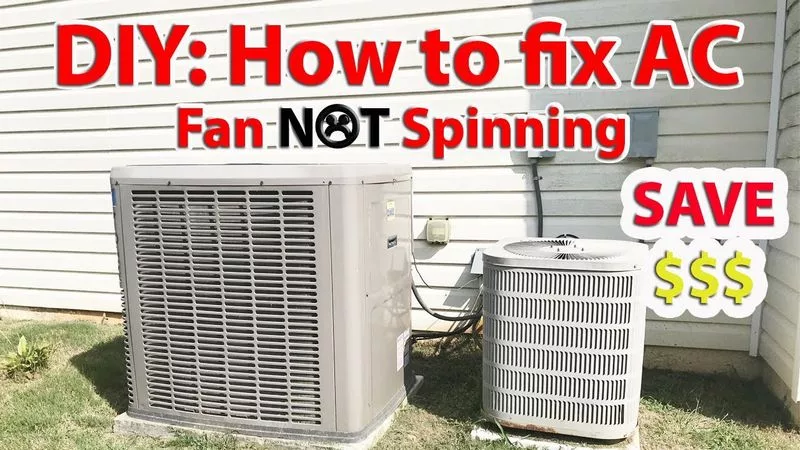
If none of these troubleshooting tips solve the issue, it is recommended to contact a professional HVAC technician to diagnose and repair the problem. They have the expertise and tools to properly identify and fix any issues with your A/C unit.
Strange Noises from the Unit
If your A/C unit fan is not spinning but you notice strange noises coming from the unit, there could be several potential issues causing this problem. These noises can provide clues as to what may be wrong with your unit, so it’s important to listen carefully and try to identify the source of the sound.
One common cause of strange noises is a malfunctioning fan motor. If the fan motor is not running properly, it may produce a variety of sounds, such as grinding, squeaking, or rattling. This issue can typically be resolved by replacing the fan motor.
Another possible culprit is a loose or damaged fan blade. If the fan blade is loose or out of balance, it can cause the unit to make unusual noises. In some cases, the fan blade may be damaged and need to be replaced.
Additionally, a clogged air filter can cause the fan to make unusual noises. When the air filter becomes dirty and clogged, it can restrict airflow and put strain on the fan motor, resulting in strange sounds. Regularly cleaning or replacing the air filter can help prevent this issue.
Finally, if you hear a buzzing or humming sound coming from the unit, it could indicate a problem with the electrical components. This may be due to a faulty capacitor or wiring issue. In these cases, it is best to contact a professional technician to diagnose and repair the problem.
In conclusion, if your A/C unit fan is not spinning and you are hearing strange noises from the unit, it is important to address the issue promptly. By identifying and resolving the source of the noises, you can ensure that your A/C unit is functioning properly and providing efficient cooling for your home.
Troubleshooting Steps to Fix A/C Unit Fan
When your A/C unit fan is not spinning, it can be a frustrating problem to deal with. However, with some troubleshooting tips, you may be able to identify and fix the issue yourself. Here are some steps you can take to troubleshoot and fix an A/C unit fan that is not spinning:
- Check power supply: The first step is to make sure your A/C unit is receiving power. Check the circuit breaker and ensure it is in the ON position. Also, check if the power cord is plugged in properly.
- Inspect the fan motor: The fan motor may be faulty and need replacement. Look for any signs of damage or wear on the motor. If you find any issues, you will need to replace the motor.
- Examine the fan blades: The fan blades may be obstructed or blocked, preventing them from spinning. Clear any debris or obstructions that may be interfering with the blades. Ensure that the blades move freely.
- Test the capacitor: The motor capacitor helps start the fan motor. A faulty capacitor can cause the fan not to spin. Use a multimeter to check the capacitance. If it is below the recommended range, replace the capacitor.
- Check the fan relay switch: The fan relay switch sends power to the fan motor. If the switch is faulty, the fan may not spin. Test the switch for continuity using a multimeter. If there is no continuity, replace the switch.
- Inspect the thermostat: The thermostat controls the A/C unit’s operation. Check if it is set to the correct mode and temperature. If the thermostat is not working properly, it may prevent the fan from spinning.
- Clean the condenser coils: Dirty condenser coils can restrict airflow and cause the fan to have difficulty spinning. Use a soft brush or vacuum to clean the coils and remove any dirt or debris.
- Call a professional technician: If you are unable to identify or fix the issue on your own, it may be time to call a professional HVAC technician. They will have the necessary knowledge and tools to diagnose and repair the problem.
By following these troubleshooting steps, you may be able to identify and fix the issue of an A/C unit fan not spinning. Remember, if you are unsure or uncomfortable working with electrical components, it is always best to seek professional help.
Check Power Supply
One of the first troubleshooting tips to consider when your A/C unit fan is not spinning is to check the power supply. The fan may not be spinning because it is not receiving power. Make sure that the unit is properly plugged in and that the power switch is turned on. It is also a good idea to check the circuit breaker to see if it has tripped. If the circuit breaker has tripped, reset it and see if the fan starts spinning again.
If the power supply is not the issue, it is possible that there is a problem with the electrical connections. Inspect the wiring to ensure that there are no loose or damaged wires. If you are comfortable working with electrical components, you can use a multimeter to test the electrical connections and ensure that they are providing power to the fan motor.
| Troubleshooting Tip: | If you are uncertain about working with electricity, it is best to contact a professional technician to perform these tests and make any necessary repairs. |
In some cases, the issue may be related to a faulty power cord or a faulty power supply unit. If you suspect this to be the problem, it is recommended to replace the power cord or contact a professional technician to inspect and replace the power supply unit.
If the power supply is not the cause of the issue, there may be a problem with the fan motor itself. This could be due to a motor failure or a faulty capacitor. If you have checked the power supply and wiring connections and the fan still does not spin, it is best to consult a professional technician to diagnose and fix the issue.
Inspect Capacitor
If your A/C unit fan is not spinning, a common cause could be a faulty capacitor. The capacitor is an essential component of the fan motor that helps start and run the motor efficiently. Before inspecting the capacitor, be sure to turn off the power to the A/C unit.
Start by locating the capacitor, which is usually cylindrical in shape and located near the fan motor. Inspect the capacitor visually for any signs of damage, such as bulging, leaking, or burnt marks. These are indications that the capacitor may be faulty and needs to be replaced.
Use a multimeter to test the capacitance of the capacitor. Set the multimeter to the capacitance testing mode and carefully discharge the capacitor if it still holds a charge. Then, touch the multimeter leads to the corresponding terminals of the capacitor and check the reading on the multimeter. If the reading is significantly lower or higher than the manufacturer’s specified value, the capacitor is likely defective and should be replaced.
If the capacitor appears to be in good condition and tests within the proper range, it may still be worth considering replacing it as a precautionary measure. Capacitors can deteriorate over time and may fail soon even if they currently appear to be working correctly.
Once you have determined that the capacitor is faulty, you can purchase a replacement capacitor from a local HVAC supplier or online. Make sure to select a capacitor that matches the specifications (voltage rating and capacitance) of the original capacitor. Replace the faulty capacitor with the new one, making sure to connect the wires correctly.
Inspecting and replacing the capacitor is a relatively simple troubleshooting step that could solve the problem of your A/C unit fan not spinning. However, if the issue persists after inspecting and replacing the capacitor, it is advisable to seek professional help to avoid any further damage or safety risks.
Replace Motor
If your A/C unit fan is not spinning, it may be due to a faulty motor. In this case, you’ll need to replace the motor to ensure that the fan can spin properly again.
Here are some tips to help you replace the motor:
- Turn off the power: Before starting any repairs, make sure to turn off the power to the A/C unit. This will prevent any accidents or injuries.
- Remove the fan: Locate the fan motor and disconnect it from the power source. Use a wrench or screwdriver to remove any screws or bolts holding the fan in place.
- Disconnect the wiring: Carefully disconnect the wiring from the old motor. Take note of how the wires are connected so that you can easily reconnect them to the new motor later.
- Remove the motor: Once the wiring is disconnected, you can remove the old motor from the unit. This may require removing additional screws or brackets.
- Install the new motor: Place the new motor in the same position as the old motor and secure it with screws or brackets.
- Reconnect the wiring: Reconnect the wiring to the new motor, making sure to match the correct wires together. Double-check your connections to ensure they are secure.
- Test the fan: Turn on the power to the A/C unit and test the fan to see if it is spinning properly. If it is, then you have successfully replaced the motor.
Replacing the motor of your A/C unit fan can be a bit challenging, so if you’re unsure or uncomfortable doing it yourself, it’s best to hire a professional HVAC technician. They have the expertise and experience to safely and effectively replace the motor for you.
Note: It’s important to regularly maintain your A/C unit to prevent issues like a fan not spinning. Clean or replace air filters, remove any debris from the unit, and schedule annual maintenance inspections to keep your A/C unit running smoothly.
Professional Help for A/C Unit Fan Issues
While many troubleshooting tips can help resolve a fan spinning issue with your A/C unit, there may come a time when professional help is necessary. Hiring a licensed HVAC technician can provide expert insight and expertise in resolving A/C unit fan problems.
Professional HVAC technicians have the experience and knowledge to accurately diagnose and repair A/C unit fan issues. They can identify the root cause of the problem, whether it’s a faulty motor, a broken belt, or a malfunctioning fan switch. By having a professional inspect your A/C unit, you can ensure that any necessary repairs are done correctly and efficiently.
In addition to diagnosing and repairing issues, HVAC technicians can also provide preventative maintenance for your A/C unit’s fan. Regular maintenance can help prolong the lifespan of your A/C unit and prevent future fan problems. This may include cleaning the fan blades, lubricating moving parts, and checking electrical connections to ensure optimal performance.
When searching for a professional HVAC technician, look for someone who is licensed, insured, and has a good reputation in the industry. Ask for recommendations from friends or family members who have used HVAC services in the past. Additionally, consider checking online reviews to get an idea of the technician’s track record and customer satisfaction.
Remember, attempting to fix an A/C unit fan issue on your own can be dangerous and may damage your A/C unit further. It’s essential to prioritize your safety and the proper functioning of your A/C unit by seeking professional help when needed. With the help of a qualified HVAC technician, you can ensure that your A/C unit’s fan is spinning correctly and providing efficient cooling for your home or office.
When to Call an HVAC Technician
If you have tried all the troubleshooting tips mentioned above and your A/C unit fan is still not spinning, it may be time to call an HVAC technician. A non-spinning fan could be indicative of a more serious problem with your unit that requires professional attention.
An HVAC technician will have the knowledge and expertise to diagnose and repair the issue. They will be able to assess the motor, electrical connections, and other components of your A/C unit to determine the cause of the problem. Attempting to fix the issue yourself could potentially cause further damage or even pose a safety risk.
Additionally, if your fan motor needs to be replaced, an HVAC technician will have the necessary tools and equipment to do so. They will be able to source the correct replacement part and ensure it is installed correctly.
Calling an HVAC technician can save you time, money, and frustration. They will be able to get your A/C unit up and running smoothly again, ensuring that you stay cool and comfortable during hot summer days.
How to Find a Reliable HVAC Technician
When your A/C unit’s fan is not spinning and you’ve tried all the troubleshooting tips to fix it, you may need to call in a professional HVAC technician. However, finding a reliable technician can be a daunting task. Here are some tips to help you find the right HVAC technician for your needs:
- Ask for recommendations: Start by asking your friends, family, and neighbors if they have any recommendations for reliable HVAC technicians. Personal recommendations are often the most trustworthy.
- Check online reviews: Take advantage of online review platforms to read about other customers’ experiences with different HVAC technicians in your area. Look for technicians with consistently positive reviews.
- Look for certifications and licenses: A reliable HVAC technician should have the necessary certifications and licenses to perform their job. Look for technicians who are certified by reputable organizations such as NATE (North American Technician Excellence).
- Inquire about experience: Ask the HVAC technician about their experience in the field. A technician with more years of experience is likely to have a better understanding of how to solve complex HVAC issues.
- Ask about insurance: It’s important to hire an HVAC technician who has liability insurance. This insurance will protect you and your property in case any accidents or damages occur during the repair process.
- Compare quotes: Before hiring an HVAC technician, it’s a good idea to request quotes from several different technicians. Compare the quotes to ensure they are reasonable and within your budget.
- Check for warranties: Inquire about any warranties or guarantees offered by the HVAC technician. A reliable technician will stand behind their work and offer warranties to provide peace of mind.
- Ask for references: Finally, don’t hesitate to ask the HVAC technician for references. Contact these references to get a better understanding of the technician’s work ethic, professionalism, and quality of service.
By following these tips, you can increase the likelihood of finding a reliable HVAC technician to fix your A/C unit’s fan that is not spinning. Remember to take your time and do thorough research to ensure you choose the right technician for the job.
Frequently Asked Questions:
Why is my A/C unit fan not spinning?
There could be several reasons why your A/C unit fan is not spinning. It could be due to a faulty motor, a blown fuse, a tripped breaker, a malfunctioning thermostat, or a faulty capacitor. It is best to call a professional technician to diagnose and fix the problem.
Can I fix the fan problem myself or do I need to call a professional?
If you are comfortable and experienced with working on HVAC systems, you can try troubleshooting the fan problem yourself. However, if you are not familiar with HVAC systems or if the problem persists after your attempts at fixing it, it is best to call a professional technician.
What can I do if the fan motor is faulty?
If the fan motor is faulty, you will likely need to replace it. You can purchase a new fan motor from a local HVAC supply store or online. Make sure to replace the faulty motor with the same type and specifications as the original. If you are not confident in replacing the motor yourself, it is best to hire a professional technician.
Why is the capacitor a potential cause of the fan not spinning?
The capacitor in an A/C unit provides the initial electrical jolt to start the fan motor. If the capacitor is faulty or worn out, it may not be able to provide enough power to start the motor, causing the fan not to spin. You can test the capacitor with a multimeter or have a professional technician diagnose it for you.
What should I do if the breaker keeps tripping?
If the breaker keeps tripping whenever you try to start the A/C unit, it could indicate an electrical problem. Check for any loose or frayed wires and make sure all connections are secure. If you are not comfortable working with electrical components, it is best to call a professional technician to inspect and fix the issue.
My A/C unit fan is not spinning, what could be the problem?
There are several possible reasons why your A/C unit fan is not spinning. It could be a problem with the fan motor, a faulty fan capacitor, a tripped circuit breaker or blown fuse, a damaged fan belt, or a malfunctioning thermostat. It is recommended to check each of these components to identify and fix the issue.
How can I troubleshoot if the A/C unit fan is not spinning?
If your A/C unit fan is not spinning, you can try a few troubleshooting steps. First, check if the fan motor is receiving power by testing the voltage at the motor leads with a multimeter. If there is power, check the fan capacitor and replace it if it is faulty. Next, check if the circuit breaker or fuse related to the fan has tripped or blown, and reset or replace it if necessary. Also, inspect the fan belt for any damage or if it has become loose, and tighten or replace it as needed. Finally, check the thermostat settings and make sure it is functioning correctly. If these steps do not solve the problem, it is best to contact a professional HVAC technician.

